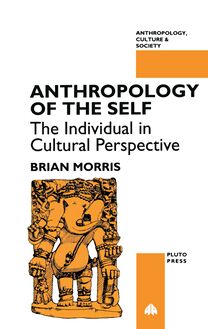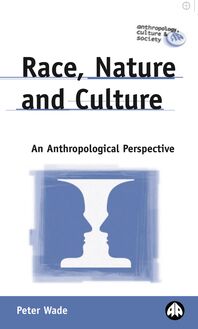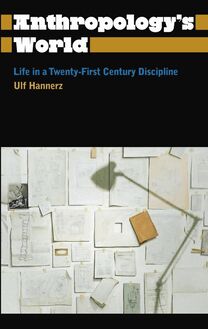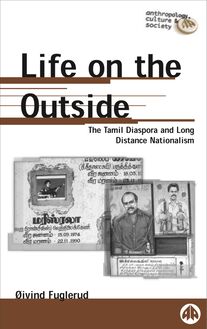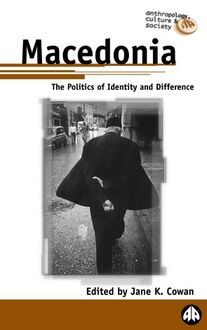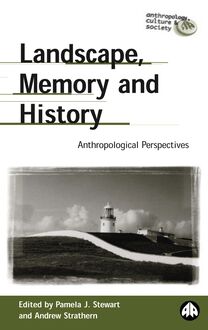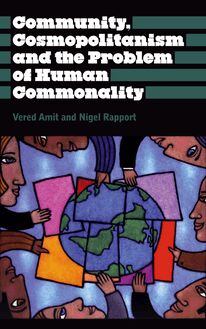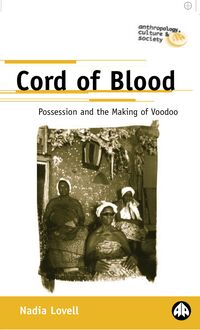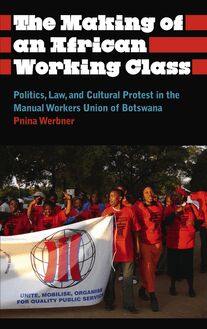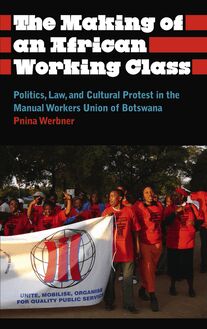-
 Univers
Univers
-
 Ebooks
Ebooks
-
 Livres audio
Livres audio
-
 Presse
Presse
-
 Podcasts
Podcasts
-
 BD
BD
-
 Documents
Documents
-
- Cours
- Révisions
- Ressources pédagogiques
- Sciences de l’éducation
- Manuels scolaires
- Langues
- Travaux de classe
- Annales de BEP
- Etudes supérieures
- Maternelle et primaire
- Fiches de lecture
- Orientation scolaire
- Méthodologie
- Corrigés de devoir
- Annales d’examens et concours
- Annales du bac
- Annales du brevet
- Rapports de stage
La lecture à portée de main
Vous pourrez modifier la taille du texte de cet ouvrage
Découvre YouScribe en t'inscrivant gratuitement
Je m'inscrisDécouvre YouScribe en t'inscrivant gratuitement
Je m'inscrisEn savoir plus
Vous pourrez modifier la taille du texte de cet ouvrage
En savoir plus

Description
The contributors argue that the state is not a fixed and definite object. Our perceptions of it are constantly changing, and differ from person to person. What is your idea of the state if you are a refugee? Or if you are living in post-aparteid South Africa? Our perceptions are formed and sustained by evolving discourses and techniques -- these come from institutions such as government, but are also made by communities and individuals.
The contributors examine how state structures are viewed from the inside, by official state bodies, composed of bureaucrats and politicians; and how these state manifestations are supported, reproduced or transformed at a local level. An outline of theoretical approaches is followed by nine case studies ranging from South Africa to Peru to Norway.
With a good range of contributors including Cris Shore, Clifton Crais, Ana Alonso and Bruce Kapferer, this is a comprehensive critical analysis of anthropological approaches to the study of state formation.
Foreword by Bruce Kapferer
Preface
PART I. THEORETICAL APPROACHES
1. Introduction by Christian Krohn-Hansen and Knut G. Nustad
2. Sovereignty, the Spatial Politics of Security, and Gender: Looking North and South from the US-Mexico Border, by Ana M. Alonso
PART II. A VIEW FROM COMMUNITIES
3. Chiefs and Bureaucrats in the Making of Empire: A Drama from the Transkei, South Africa, October 1880, by Clifton Crais
4. State Formation through Development in Post-apartheid South Africa, by Knut G. Nustad
5. Negotiated Dictatorship: The Building of the Trujillo State in the Southwestern Dominican Republic, by Christian Krohn-Hansen
6. The Materiality of State Effects: An Ethnography of a Road in the Peruvian Andes, by Penelope Harvey
7. Contradictory Notions of the State: Returned Refugees in Guatemala, by Kristi Anne Stølen
PART III: A VIEW FROM STATE BODIES
8. Counting on State Subjects: State Formation and Citizenship in Twentieth-Century
Mexico, by Helga Baitenmannpg
9. ‘A Speech that the Entire Ministry may Stand for’: On Generating State Voice, by Iver B. Neumann
10. ‘Better Safe than Sorry’: Legislating Assisted Conception in Norway, by Marit Melhuus
11. The State of the State in Europe, or, ‘What is the European Union that Anthropologists Should be Mindful of it’?, by Cris Shore
Contributors
Index
Sujets
Informations
| Publié par | Pluto Press |
| Date de parution | 20 septembre 2005 |
| Nombre de lectures | 0 |
| EAN13 | 9781783715350 |
| Langue | English |
Informations légales : prix de location à la page 0,1850€. Cette information est donnée uniquement à titre indicatif conformément à la législation en vigueur.
Extrait
STATE FORMATION
Anthropology, Culture and Society
Series Editors: Professor Thomas Hylland Eriksen, University of Oslo Dr Jon P. Mitchell, University of Sussex
Land, Law and Environment: Mythical Land, Legal Boundaries Edited by A LLEN A BRAMSON AND D IMITRIOS T HEODOSSOPOULOS
The Trouble With Community: Anthropological Reflections on Movement, Identity and Collectivity V ERED A MIT AND N IGEL R APPORT
Anthropology and the Will to Meaning: A Postcolonial Critique V ASSOS A RGYROU
Risk Revisited Edited by P AT C APLAN
Macedonia: The Politics of Identity and Difference Edited by J ANE K. C OWAN
Ethnicity and Nationalism: Anthropological Perspectives T HOMAS H YLLAND E RIKSEN
Globalisation: Studies in Anthropology T HOMAS H YLLAND E RIKSEN
A History of Anthropology T HOMAS H YLLAND E RIKSEN AND F INN S IVERT N IELSEN
Small Places, Large Issues; An Introduction to Social and Cultural Anthropology T HOMAS H YLLAND E RIKSEN
What is Anthropology? T HOMAS H YLLAND E RIKSEN
Anthropology, Development and the Post-modern Challenge K ATY G ARDNER AND D AVID L EWIS
Power and its Disguises: Anthropological Perspectives on Power J OHN G LEDHILL
Corruption: Anthropological Perspectives Edited by D IETER H ALLER AND C RIS S HORE
Control and Subversion: Gender Relations in Tajikistan C OLETTE H ARRIS
Youth and the State in Hungary: Capitalism, Communism and Class L ÁSZLÓ K ÜRTI
Locating Cultural Creativity Edited by J OHN L IEP
Cord of Blood: Possession and the Making of Voodoo N ADIA L OVELL
The Aid Effect: Giving and Governing in International Development Edited by D AVID M OSSE AND D AVID L EWIS
Cultivating Development: An Ethnography of Aid Policy and Practice D AVID M OSSE
Ethnography and Prostitution in Peru L ORRAINE N ENCEL
Witchcraft, Power and Politics: Exploring the Occult in the South African Lowveld I SAK A. N IEHAUS WITH E LIAZAAR M OHLALA AND K ALLY S HOKANE
Power, Community and the State: The Political Anthropology of Organisation in Mexico M ONIQUE N UIJTEN
Social Mobility in Kerala: Modernity and Identity in Conflict F ILIPPO O SELLA AND C AROLINE O SELLA
Negotiating Local Knowledge: Power and Identity in Development Edited by J OHAN P OTTIER , A LAN B ICKER AND P AUL S ILLITOE
Class, Nation and Identity: The Anthropology of Political Movements J EFF P RATT
Ethnic Distinctions, Local Meanings: Negotiating Cultural Identities in China M ARY R ACK
The Cultural Politics of Markets: Economic Liberalisation and Social Change in Nepal K ATHARINE N EILSON R ANKIN
Bearing Witness: Women and the Truth and Reconciliation Commission in South Africa F IONA C. R OSS
Landscape, Memory and History: Anthropological Perspectives Edited by P AMELA J. S TEWART AND A NDREW S TRATHERN
Terror and Violence: Imagination and the Unimaginable Edited by A NDREW S TRATHERN , P AMELA J. S TEWART AND N EIL L. W HITEHEAD
Race, Nature and Culture: An Anthropological Perspective P ETER W ADE
STATE FORMATION
Anthropological Perspectives
Edited by C HRISTIAN K ROHN -H ANSEN and K NUT G. N USTAD
Foreword by B RUCE K APFERER
First published 2005 by Pluto Press 345 Archway Road, London N6 5AA and 839 Greene Street, Ann Arbor, MI 48106
www.plutobooks.com
Copyright © Christian Krohn-Hansen and Knut G. Nustad 2005
The right of the individual contributors to be identified as the authors of this work has been asserted by them in accordance with the Copyright, Designs and Patents Act 1988.
British Library Cataloguing in Publication Data A catalogue record for this book is available from the British Library
ISBN 978 0 7453 2441 8 paperback ISBN 978 1 7837 1535 0 ePub ISBN 978 1 7837 1536 7 Mobi
Library of Congress Cataloging-in-Publication Data
State formation: anthropological perspectives / edited by Christian Krohn-Hansen and Knut G. Nustad.
p. cm. — (Anthropology, culture, and society)
Chiefly papers presented at a workshop held at the University of Oslo in Oct. 2002.
Includes bibliographical references.
ISBN 0 7453 2442 8 (hardback) ISBN 0 7453 2441 X (paperback)
1. Political anthropology. 2. State, The. 3. Politics and culture. I. Krohn-Hansen, Christian, 1957– II. Nustad, Knut G., 1968– III. Series.
GN492.S83 2002
306.2—dc22
2005006706
10 9 8 7 6 5 4 3 2 1
Designed and produced for Pluto Press by Chase Publishing Services Ltd, Fortescue, Sidmouth, EX10 9QG, England Typeset from disk by Stanford DTP Services, Northampton, England Printed and bound by CPI Group (UK) Ltd, Croydon, CR0 4YY
CONTENTS
Foreword Bruce Kapferer
Preface
PART I THEORETICAL APPROACHES
1.
Introduction Christian Krohn-Hansen and Knut G. Nustad
2.
Sovereignty, the Spatial Politics of Security, and Gender: Looking North and South from the US–Mexico Border Ana M. Alonso
PART II A VIEW FROM COMMUNITIES
3.
Chiefs and Bureaucrats in the Making of Empire: A Drama from the Transkei, South Africa, October 1880 Clifton Crais
4.
State Formation through Development in Post-apartheid South Africa Knut G. Nustad
5.
Negotiated Dictatorship: The Building of the Trujillo State in the Southwestern Dominican Republic Christian Krohn-Hansen
6.
The Materiality of State-Effects: An Ethnography of a Road in the Peruvian Andes Penelope Harvey
7.
Contradictory Notions of the State: Returned Refugees in Guatemala Kristi Anne Stølen
PART III A VIEW FROM STATE BODIES
8.
Counting on State Subjects: State Formation and Citizenship in Twentieth-century Mexico Helga Baitenmann
9.
‘A Speech that the Entire Ministry May Stand For’: On Generating State Voice Iver B. Neumann
10.
‘Better Safe than Sorry’: Legislating Assisted Conception in Norway Marit Melhuus
11.
The State of the State in Europe, or, ‘What is the European Union that Anthropologists Should be Mindful of It?’ Cris Shore
Contributors
Index
FOREWORD
Bruce Kapferer
The question of the state has always been at the centre of political and philosophical debate but interest has intensified of late across the social sciences. This has much to do with attacks on modernism, the state being seen as the arch-culprit in the human crises, destructions and disasters that have befallen humankind throughout its history, and most of all in the more recent centuries. Political and economic developments – the fall of the Soviet Union, 9/11 and a new US militarism, the European Union and its reaction to the Treaty of Westphalia, contemporary globalisation, the further growth of corporate power, the Internet – have dramatically affected the nature of state power. How this is so is a major problem to be examined, as are the human and social consequences that follow from the redrawing of the nature of state orders and power. The importance of such inquiry cannot be overstressed. The state, at least the imagination of the state (the real or fantasised effect of the state on human existence) has likely been of major influence on the lives of human beings from the very beginnings of human history, even for those peoples who refused state forms of control and order. It has been integral within human subjectivity and part of the dynamics vital in the creation of human relations (even in contexts of the rejection of any kind of state control, as Clastres once discussed). In some approaches (particularly since the rise of modern nationalism) the state has frequently been conceived as virtually synonymous with the imaginary of society. I am suggesting that an understanding of the state is crucial to an exploration of human being, for the social sciences especially, and that it is receiving a renewed focus of interest is appropriate to its centrality. This is especially so in the current situation of what today appears to many commentators and scholars alike as major changes of an almost cosmological and ontological quality that are taking place in contemporary state orders and the surrounding political and social fields of their operation.
Of course I am talking about the state in an over-general and in a far too uniform way. The state has taken widely diverse forms throughout history and the kind of state, or modern or contemporary state, that the essays in this volume address is a recent invention, although still highly diverse in its shaping. Within that sphere too easily glossed as the West, what is discussed as the state has taken quite different forms. The highly centralised forms that grew up in Europe and frequently among its colonised outer regions are, perhaps, to be distinguished from the US form, as De Tocqueville posited. While many might contest this, I think a strong argument could be made that the currently globally dominant US form that is certainly effecting changes in state formations throughout the world has dimensions in its imaginary and in its practice quite distinct from its neighbours across the Atlantic. This was a powerful imaginative intent of its founders and in numerous aspects it was already postmodern. I suggest that the experience of the state and the way the state is subjectivised in the US are often very different from the experience and subjectivisation of the state in many other parts of the world. Such an observation is relevant to many current discussions of the state, which tend to conceive of it from within a dominant North American postmodern perspective and which, not infrequently, even if subconsciously, becomes an ideal standard against which others are measured.
But all the above does not get us very close to an understanding as to what exactly we understand by the state or the often very different formations that we might describe as involving state processes. This is one of the important contributions of the essays in this volume. Here there is a concern with the practices through which the state materially makes its appearance, whether this be through the technological construction of lines of communication (and control), the bureaucratic inscription of subjects, the presentation of offi
-
 Univers
Univers
-
 Ebooks
Ebooks
-
 Livres audio
Livres audio
-
 Presse
Presse
-
 Podcasts
Podcasts
-
 BD
BD
-
 Documents
Documents
-
Jeunesse
-
Littérature
-
Ressources professionnelles
-
Santé et bien-être
-
Savoirs
-
Education
-
Loisirs et hobbies
-
Art, musique et cinéma
-
Actualité et débat de société
-
Jeunesse
-
Littérature
-
Ressources professionnelles
-
Santé et bien-être
-
Savoirs
-
Education
-
Loisirs et hobbies
-
Art, musique et cinéma
-
Actualité et débat de société
-
Actualités
-
Lifestyle
-
Presse jeunesse
-
Presse professionnelle
-
Pratique
-
Presse sportive
-
Presse internationale
-
Culture & Médias
-
Action et Aventures
-
Science-fiction et Fantasy
-
Société
-
Jeunesse
-
Littérature
-
Ressources professionnelles
-
Santé et bien-être
-
Savoirs
-
Education
-
Loisirs et hobbies
-
Art, musique et cinéma
-
Actualité et débat de société
- Cours
- Révisions
- Ressources pédagogiques
- Sciences de l’éducation
- Manuels scolaires
- Langues
- Travaux de classe
- Annales de BEP
- Etudes supérieures
- Maternelle et primaire
- Fiches de lecture
- Orientation scolaire
- Méthodologie
- Corrigés de devoir
- Annales d’examens et concours
- Annales du bac
- Annales du brevet
- Rapports de stage
